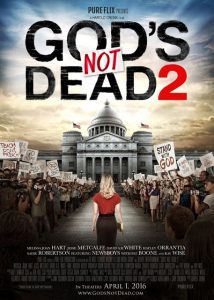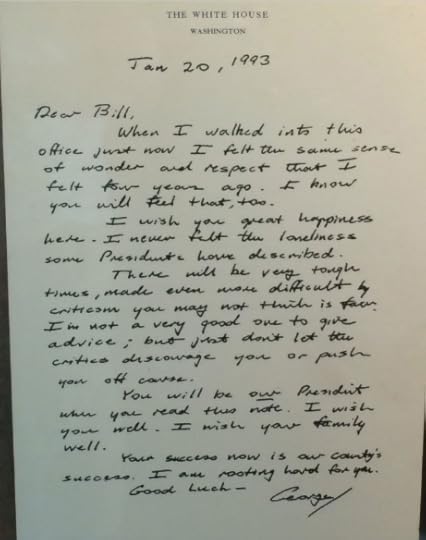Randal Rauser's Blog, page 137
November 19, 2016
Why Roger Ebert could have given God’s not Dead 2 Four Stars
 It should be no surprise that the critics lampooned God’s not Dead 2: it received an abysmal 9% average from Rotten Tomatoes. So why, as my review title suggests, would I think the dearly departed (and dearly missed) Roger Ebert could well have given the film four stars, his highest rating?
It should be no surprise that the critics lampooned God’s not Dead 2: it received an abysmal 9% average from Rotten Tomatoes. So why, as my review title suggests, would I think the dearly departed (and dearly missed) Roger Ebert could well have given the film four stars, his highest rating?
Simple. Ebert famously reviewed films relative to genre and audience expectation. He could just as well bestow his coveted four star rating on a romantic comedy or supernatural horror as a lofty family drama. And God’s not Dead 2 is a perfect example of its genre.
And what genre is that? I speak here of that under-appreciated category known as the Christian propaganda film. God’s not Dead 2 is outstanding as an oorah! propaganda piece that shows its mettle at rallying conservative Christian troops in the current culture wars. Like most effective conservative Christian propaganda, it is heavy-handed, paranoid, and differs from a standard evangelistic YWAM skit only in production values and length.
In the film, a young blond Christian public school teacher named Grace Wesley is attacked by a basket of anti-Christian deplorables including her own school board and teachers’ union, a bile-filled atheistic ACLU lawyer, and a fiercely antagonistic liberal media. Her crime? Simply daring to answer a student’s question about Jesus.
Did she say JESUS?! Get a rope!!
The ACLU lawyer in particular embodies the evangelical’s paranoid projection of Christian-hating liberals. Before the trial begins he snarls, “We’re going to prove once and for all that God is dead.” (Yup, definitely sounds like the ACLU!) Later he confronts Grace’s lawyer with the icy threat: “I hate what people like your client stand for.” And so when Grace’s lawyer says that people view her Christian faith as a plague on society that needs to be eradicated, you know he isn’t exaggerating.
But will this basket of secular deplorables stop Grace from defending her faith? Don’t bet on it! As she boldly tells her lawyer, “I would rather stand with God and be judged by the world than stand with the world and be judged by God. I am not going to be afraid to say the name Jesus!”
(Madalyn Murray O’Hair must be spinning in her grave.)
As the film builds toward its emotional climax, Grace’s lawyer appears to turn on her by questioning her as a hostile witness. The scene is a bald attempt to recreate the high courtroom drama of a film like A Few Good Men — “You can’t handle the truth!” — as the lawyer uses the ruse as a bald opportunity to impugn the judge, the court, and the entire society for its unabashed anti-Christian bias.
Needless to say, Grace wins the trial as the Newsboys make their entry to play another concert which is wholly gratuitous to the plot. Before the credits roll, Christians everywhere are reminded that God is good and most definitely not dead.
If that’s your thing then you’ll love God’s not Dead 2. After watching it you’ll be convinced that conservative American Christians are under relentless attack from the forces of evil, also known as atheists, the ACLU, the judicial system, the media, and the secular university system. (The film goes out of its way to impugn the “Ivy League” schools in particular; in contrast, the Newsboys concert appropriately occurs on the campus of for-profit Christian juggernaut Grand Canyon University.)
After watching God’s not Dead 2 you’ll be so concerned that the liberals and atheists are out to get you and your fellow Christians, you won’t even notice the very real threats currently being directed at the Muslim-American community. To note some examples, this past week President-elect Donald Trump chose Michael Flynn as his National Security Advisor, even though Flynn has insisted that Americans should be afraid of Islam (not Islamic radicalism, but Islam itself) and further that Islam is really a political ideology rather than a religion. (This latter claim is particularly troubling as it sets the stage for challenging the religious freedom currently granted to Muslims.)
God’s not Dead 2 will make you so wary of the ACLU’s conspiracy to make Christian bakers sell cakes with two grooms that you won’t even notice that Trump surrogate Carl Higbie just defended Trump’s proposed Muslim registry by appealing to the precedent of WW2 Japanese internment camps.
You’ll be so fearful that saying “Jesus” at work might get you fired that you won’t bother to notice that the President-elect himself has a long history of demonizing Muslims as in his infamous declaration, “I think Islam hates us.”
But even if you were aware of the growing persecution of Muslims, God’s not Dead 2 would make sure you didn’t care, because the persecution of Christians is what really matters. To drive the point home, at one point in the film Grace’s grandfather Walter (Pat Boone) observes that “The most basic human right of all is the right to know Jesus.” Just so we’re clear, the most basic human right has nothing to do with freedom of conscience or freedom of worship, per se. Rather, it has to do with the right to worship Jesus. In other words, too bad for you Muslims.
So if Christian propaganda films are your thing, then you can do no better than God’s not Dead 2. That’s why it received a stellar “A” rating from Cinemascore (a firm that polls average film goers). “Us against them” was never so satisfying.
As Ebert might have said, Four stars!
If you benefited from this review please consider upvoting it at Amazon.com.
The post Why Roger Ebert could have given God’s not Dead 2 Four Stars appeared first on Randal Rauser.
An Atheist and a Christian Walk into a Bar … and two guys wrote a book about it
 Here’s a puzzle: what would make a better Christmas gift than one copy of Randal Rauser and Justin Schieber’s new book An Atheist and a Christian Walk into a Bar?
Here’s a puzzle: what would make a better Christmas gift than one copy of Randal Rauser and Justin Schieber’s new book An Atheist and a Christian Walk into a Bar?
Easy, ten copies!
It’s now merely a couple weeks until the official shipping date of December 6th. (And note, by the way, that December 6th is the Feast of Saint Nicholas. How appropriate!)
The book aims to move beyond the Fairyology vs. Goo debates I lamented in my previous article with a combination of good arguments and bad jokes. As you can probably guess, it is not an academic book, but neither is it an introduction to the god debates for the complete novice. It is perfectly suited for those who already have read a few books, articles, or blogs in the philosophy of religion. And that, of course, fits the profile of the reader for this blog.
So you can start your Christmas shopping now by clicking on that handy Amazon widget to the right of this article.
And for those of you who haven’t yet seen the early endorsements (I originally posted them in August), here they are:
* * *
“Imagine sitting at a table in your local bar or coffee shop and overhearing two smart, energetic, and creative thinkers go at it over the existence of the Jewish/Christian/Islamic god. Thanks to Rauser and Schieber, we don’t have to imagine: this book is that debate. Anyone who enjoys a hard-hitting but classy philosophical dustup will love this fun and informative book.”
—Guy P. Harrison, author of 50 Simple Questions for Every Christian and 50 Reasons People Give for Believing in a God
“Fun, thoughtful, and surprising. Rauser and Schieber engage in passionate, thoughtful, and—this is key—civil conversation on the enduring question of whether or not God exists and why that matters. Grab a cup of coffee or a favorite pint and buckle up. You’ll find yourself reexamining what you thought you believed—or didn’t believe—about God.”
—Bryan Berghoef, author of Pub Theology: Beer, Conversation, and God
“Schieber and Rauser offer something sadly too rare: a civil, respectful, and reasonable dialogue over the question of the existence of god. At a time when theists and atheists usually just lob rhetorical bombs at each other over a figurative DMZ, that’s a rather refreshing thing, regardless of which side you come down on.”
—Ed Brayton, writer at Dispatches from the Culture Wars and 2009 recipient of the Friend of Darwin Award from the National Center for Science Education
“A refreshing book with perfect sparring partners! Schieber and Rauser insightfully refute bad arguments related to atheism and also highlight issues that need more attention within the popular debate over God’s existence.”
—Trent Horn, author of Answering Atheism
“A book that balances accessibility, rigor, and probing creativity, it has the potential to bring into the mainstream the sophistication and constructive insight of academic philosophy of religion—something often sorely missing from the preachers and polemicists who hog most of the attention in the theism/atheism debate.”
—Daniel Fincke, founder and primary writer of philosophy blog Camels with Hammers
The post An Atheist and a Christian Walk into a Bar … and two guys wrote a book about it appeared first on Randal Rauser.
November 18, 2016
Fairyology vs. Goo: Atheists and Christians in Conversation
In the second edition of The God Delusion biologist Richard Dawkins defends himself against the charge that he is out of his depth as he opines magisterially on matters of theology and philosophy of religion. Alas, Dawkins’ response merely illustrates the problem. His reply is to insist that one need not study the canons of fairyology before dismissing fairies. Likewise, one need not study the canons of theology and philosophy of religion before dismissing God.
As I said, that juvenile retort merely illustrates the problem. It’s precisely because Dawkins has invested no effort in trying to move beyond his juvenile strawman caricatures of God that he can dismiss the concept as akin to a garden fairy.
A friend of mine recently sent me a link for John Thatamanil’s 2010 HuffPo article “Beyond the Theism/Atheism Divide: A Plea for Humility” in which Thatamanil nicely summarizes the problem:
What binds many atheists together is an unshakable conviction that they know everything there is to know about religion, namely that it is irrational bondage to immutable doctrine. No amount of counterevidence can convince such atheists otherwise. What irony! But where do they come by this knowledge about religion? Their expertise seems to be derived by virtue of sheer sentience alone.
By contrast, if a theologian were to broadcast her convictions about molecular or evolutionary biology without some years of careful reading and study, she would be met with jeering laughter and summarily dismissed. Why then are uninformed atheists who have never read in theology exempt from similar derision? Sadly, every pedant believes himself entitled to his unearned convictions about religion.
The only point at which I’d differ from Thatamanil is that I’d prefer to speak of a more specific domain than “religion” simpliciter. But the same point applies when folks ridicule concepts in academic theology or philosophy of religion without ever having invested serious mental energy in the discipline.
Thatamanil gives the example of Christians exercising unearned convictions about molecular or evolutionary biology. One might equally think of a person who dismisses global warming as a “hoax” based on the testimony of his favorite conservative talk radio host. As for the Christian dismissal of atheists, I can note an example I’ve talked about before. In the Focus on the Family produced curriculum The Truth Project, the teacher indoctrinator Del Tackett notes that while Christians believe human persons were created in the image of God, atheists believe human persons were created in the image of “goo”.
Nicely played, Mr. Tackett, a base rejoinder on the same level as Dawkins’ fairyology retort.
The post Fairyology vs. Goo: Atheists and Christians in Conversation appeared first on Randal Rauser.
November 15, 2016
Arrival: A Review
 First contact with intelligent alien life is one of the perennial cinematic themes. Sometimes the treatment is intimate and sentimental (E.T.); other times, the premise offers little more than a tweak of the standard war story (Independence Day; War of the Worlds). In still other cases is provides a fecund metaphor for the analysis of personal psychology or human society (Signs; District 9).
First contact with intelligent alien life is one of the perennial cinematic themes. Sometimes the treatment is intimate and sentimental (E.T.); other times, the premise offers little more than a tweak of the standard war story (Independence Day; War of the Worlds). In still other cases is provides a fecund metaphor for the analysis of personal psychology or human society (Signs; District 9).
All of these stories have their place. But for my liking the most fascinating treatments are those that recognize an affirmative answer to the question “Are we alone?” is one deserving of reverent awe. These films are quiet and meditative as they explore deep philosophical and spiritual themes. Included in their ranks one finds modern classics like Close Encounters of the Third Kind and one of my perennial favorites, Contact.
If aliens ever did arrive, how would we communicate? Would we be able to communicate? Some years ago the mathematician John Casti wrote a fascinating essay titled “Who Goes There?” in which he pointed out difficulties with the assumption that we would ever be able to communicate with intelligent aliens. Indeed, Casti notes in a smackdown of SETI’s optimism, we can’t even be sure we should be able to recognize the presence of alien intelligence should it be there.

The ships reminded me of a menhir like the one Obelix famously carried.
Arrival is aware of the challenges with communication across this greatest of divides. And so it wisely centers on the work of a gifted linguist named Louise (Amy Adams) who is tasked with interpreting the strange utterances of these newly arrived visitors to earth. The written language of the extraterrestrial visitors is as bizarre and wonderful as you might imagine. But even if it is out of this world, it can still be analyzed with scientific rigor by Louise and her colleagues. And so the journey begins to understand why the aliens with their curious ships are here.
The more we learn about the language, the more we find ourselves moving into the fascinating interrelationship between language, the mind, and reality. Does language shape our brain? Does it change the way we think? Does it create or delimit our worldview? Does it help construct reality? The journey into the aliens’ language provides answers to these questions which could support hours of discussion in a philosophy of language seminar.
The film also moves into questions of love and suffering. Louise faces burdens of suffering in her life that no person should have to bear, but the sense of purpose she derives from her interactions with the aliens raises the prospect that much suffering can be borne if we perceive a reason why we carry it.
Arrival also features Forest Whitaker and Jeremy Renner and is directed by Canadian Denis Villeneuve (among Villeneuve’s other films is 2009’s Polytechnique, a powerful depiction of the 1989 Montreal Massacre).
In my view, Arrival feels very much like a Terence Malik film in the best sense that it melds the grandest and loftiest themes with the intimate details of individual lives and moments in time. It also doesn’t feel like a Malik film in the best sense that Malik’s films can falter on languid pacing and pretension. By contrast, while Arrival had leisurely pacing (and there’s only one explosion to speak of) the viewer is buoyed on by tension you could cut with a knife. Credit must go in particular to Adams for her stellar performance.
However, the last word should go to the aliens (aka Abbott and Costello). As with Contact it is clear by the end of the film that they are most certainly not gods. But they just may be his messengers.
The post Arrival: A Review appeared first on Randal Rauser.
Blood Coming Out of Her Wherever: On Donald Trump’s misogynistic war

Two Thumbs Up for Baptist Jerry Falwell Jr’s wife proudly posing by Donald Trump’s Playboy Magazine cover
In his opening monologue on SNL this past Saturday, Dave Chappelle made a joke about staying at a Trump hotel:
“I’m staying at the Trump Hotel right now. I don’t know if he’s going to make a good president, but he makes a swell hotel suite, Imma tell you that. Housekeeping comes in in the morning, cleans my room. And I just, ‘Hey, good morning, housekeeping.’ Grab a big handful of pussy, and say, you know, boss said it was okay.”
For just a moment I recoiled at the misogyny and sexual violence of the anecodote. Then I remembered that Chappelle was simply commenting on the unrepentant misogyny and sexual violence of the president elect.
Chappelle’s sardonic commentary perfectly illustrates the phenomenon of shifting baselines, a term that refers to an alteration in the measurement of systems relative to prior reference points (i.e. the baselines). There was a time not so long ago when misogyny and sexual assault were widely tolerated in western society. During that period a wealthy and powerful man could sexually assault a working class woman with virtually no concern about reprisal or stigma. But slowly that began to change.
In the last few years the spotlight has increasingly been shone on some of the last places of bald abuse such as bars and college campuses. We are now increasingly aware of the dangers of rape culture, body shaming, et cetera. We are increasingly aware of how whistles and unwelcome comments — once considered harmless, even benevolent compliments — are in fact harassment.
These shifts in the baseline of acceptable conduct were won only after extended cultural battle with misogynist and sexist attitudes that remain deeply entrenched in particular subcultures.
But battles that were won can be lost again. Over the last several months Donald Trump has led an unprecedented assault on women from his unrepentant body shaming and threats of incarceration for abortion to his bragging about sexual assault. At a recent Trump rally one woman proudly wore a shirt that proclaimed “Donald, you can grab my pussy!” Today Megyn Kelly will appear on Dr. Phil to describe her experience of receiving verbal threats from Donald Trump prior to the debate she hosted last year. Trump has a long history of threatening journalists, but in particular female journalists. On several occasions he has denounced specific female journalists by name at rallies including CNN’s Sarah Murray and MSNBC’s Katy Tur. (For further discussion of Trump’s relationship with female reporters see here.)
Donald Trump is not yet in office and already the baselines are shifting. One can only imagine what will be considered acceptable conduct toward women after four years of his administration.
The post Blood Coming Out of Her Wherever: On Donald Trump’s misogynistic war appeared first on Randal Rauser.
November 14, 2016
The Oft-Overlooked Sins of Omission
 There is an important distinction between sins of commission (the evil action) and sins of omission (the evil failure to act). Note how reference to both is included in this familiar liturgical confession:
There is an important distinction between sins of commission (the evil action) and sins of omission (the evil failure to act). Note how reference to both is included in this familiar liturgical confession:
We have offended against thy holy laws. We have left undone those things which we ought to have done; And we have done those things which we ought not to have done; And there is no health in us.
One of the great dangers for the healthy spiritual life is sourced in a failure to grapple with our sins of omission, our failure to act in the face of unfolding injustice and evil.
Consider, for example, the evil of genocide. If we were active participants in genocide, if we had the blood of genocidal acts on our hands, there would be no mistaking it. Consequently, our need to seek contrite repentance in search of absolution would be obvious.
But what about the sins of omission? When evils like genocide unfold around the world, do we do all we can to stop them? If we don’t, we may be awash in the guilt of sins of omission without ever realizing it.
The 2004 film Hotel Rwanda tells the story of how the Hôtel des Mille Collines in Kigali became a respite for journalists, peacekeepers, and desperate Tutsis fleeing the slaughter of those dark months in 1994. Eventually through the efforts of hotel manager Paul Rusesabagina, the hotel provided a refuge which saved over 1200 people.
But while the story provides some undeniable moral inspiration (Hotel Rwanda has been called “Africa’s Schindler’s List”), that inspiration is qualified by a heady dose of human realism. At one point, a journalist goes out of the hotel and manages to collect some horrifying footage of Tutsis being slaughtered in the streets. When Jack returns, Rusesabagina is relieved and hopeful that once the international community sees this footage, they will finally intervene to stop the slaughter.
Jack is less hopeful: “Yeah, and if no one intervenes, is it still a good thing to show?” Rusesabagina is perplexed at Jack’s cynical response: “How can they not intervene when they witness such atrocities?” While Rusesabagina’s reaction is understandable, the fact is that it is also naïve. Jack’s apparent cynicism is the result of years of seeing footage of unfolding atrocities largely ignored by the television audience. As he puts it, “I think if people see this footage they’ll say, ‘Oh my God, that’s horrible,’ and then go on eating their dinners.”
Do we have sins of omission that are in need of confession? Moments when we could have acted to defend the vulnerable and stand against injustice? As Jack puts it, how many times have we witnessed unfolding evils on our screens and then gone back to eating our dinners?
The post The Oft-Overlooked Sins of Omission appeared first on Randal Rauser.
November 12, 2016
Trump: The Christian Conservative Case for Civil Disobedience

(Photo credit: KENA BETANCUR/AFP/Getty Images)
In my article “God Bless the Peaceful Protesters” I noted that Christian conservative radio personality Michael Brown had chastised the anti-Trump protesters who were obstructing traffic in several US cities. I then recounted that I had asked Brown whether he would extend that indictment to Operation Rescue, a prolife organization that has a long history of civil disobedience on behalf of the unborn. I noted at the time that Brown had not yet responded to my question.
He has since responded and I thought it would be worth recounting his response and noting some potentially surprising implications that follow from it. I’ve included the essence of our exchange below:
@DrMichaelLBrown Thanks for following up. OR has a history of civil disobedience. Would you object if a prolife protest disrupted traffic?
— Randal Rauser (@RandalRauser) November 12, 2016
@RandalRauser If that could save a human life, sure; I don't see how a protest simply to disrupt traffic stops an abortion from taking place
— Dr. Michael L. Brown (@DrMichaelLBrown) November 12, 2016
@RandalRauser Can't debate now, but having participated in OR, I find zero connection between OR & the current demonstrations.
— Dr. Michael L. Brown (@DrMichaelLBrown) November 12, 2016
@DrMichaelLBrown The folks protesting now want to change the culture too. My simple point: the divide isn't as great as you suppose.
— Randal Rauser (@RandalRauser) November 12, 2016
So here’s the main point: Michael Brown would approve of civil disobedience including protests that disrupted traffic if doing so was aimed at changing the culture and saving lives. To be sure, Brown did not say those criteria are necessary to justify a protest, but they are sufficient.
My simple point is that protests against Trump can be done for this very purpose. To begin with, as I noted in our Twitter exchange, those who protest are surely seeking to change the culture. But what about saving human lives? Could protesters be motivated by so lofty a goal as this?
Certainly. Just consider Trump’s promise to repeal Obamacare. Over the last few years Obamacare has saved many lives. These are people who would be dead now but for the coverage provided by the Affordable Care Act. If millions of Americans lose medical coverage under a Trump administration, many of them could ultimately lose their lives.
Thus, if we accept Brown’s criteria then the desire to change the culture and save Obamacare in order to save lives provides a sufficient reason to engage in civil disobedience and disrupt traffic.
One final thought: I wish that more Christian conservatives would extend their concern for the unborn fetus to other threatened and marginalized groups including the uninsured and under-insured.
The post Trump: The Christian Conservative Case for Civil Disobedience appeared first on Randal Rauser.
November 11, 2016
God Bless the Peaceful Protesters
Over the last two nights protests have erupted in several American cities in response to the shocking election of Donald Trump. We can all agree that the very small minority of protesters who turned to violence should be condemned. But what about the vast majority of peaceful protesters?
Not surprisingly, some Trump supporters have been dismissive of their efforts, while attempting to brand them as little more than immature spoiled brats who are throwing a fit because they didn’t get their way. Here’s how Christian radio host Michael Brown put it:
Perhaps many of the young people protesting the elections have not been taught that you don't always get your way?
— Dr. Michael L. Brown (@DrMichaelLBrown) November 11, 2016
There are several things wrong with the sentiment expressed in this tweet and others like it.
To begin with, Brown suggests that the protesters don’t understand democracy. Far from it. The right of peaceful protest is central to democracy and is enshrined in the First Amendment of the United States Constitution:
“Congress shall make no law respecting an establishment of religion, or prohibiting the free exercise thereof; or abridging the freedom of speech, or of the press; or the right of the people peaceably to assemble, and to petition the Government for a redress of grievances.”
Second, Brown suggests that the protesters are expressing childish, self-centered behavior, that they’re merely whining because they didn’t get their way. I could wish young adults were all this “selfish”. If you want to see real examples of selfish behavior, wait a couple weeks for all the lines forming outside Big Box stores on Black Friday as people wait to buy the latest smartphone or television or video game.
By contrast, these protesters are taking to the streets to express their vision for the Good Society. They’re concerned with the commonweal, with visible minority communities and immigrant neighbors. They’re concerned about deportation and healthcare and LGBT rights and climate change and Dodd-Frank Wall Street reform and so on. Maybe they’re naive, maybe they’re not strategic, maybe they lack a practical sense. But they’re not selfish or childish. This is the hallmark of a healthy democracy.
I responded to Brown via Twitter, noting that I thought these young people should be commended for exercising their democratic rights. He replied, “I say shame on them for their immaturity and violence and for shutting down traffic and breaking the law.” Note how he smears an entire group by the violent actions of a small minority. I’m sure Brown would be unhappy if Christians received that treatment. So it is most unfortunate that he engages in the same behavior.
What about the law-breaking and interruption of traffic flow? Well, Michael Brown is a staunch prolife activist. So I asked him whether he would extend the same indictment to prolife activists like Operation Rescue who have a long history of civil disobedience. I haven’t yet received a response.
Suffice it to say, I suspect that Brown would be okay with interrupting traffic flow if the cause were prolife. And so I suspect that the real issue motivating tweets like Brown’s is not a principled objection to protest per se, but rather an impatience toward and perhaps a demeaning condescension to those who protest on the wrong side of an issue.
Be that as it may, I say whatever your view on the election of Donald Trump, we should all be thankful for young people who line up in the cold not to acquire the latest Black Friday special but rather to exercise their constitutional right of free speech and public protest.
God bless the peaceful protesters.
The post God Bless the Peaceful Protesters appeared first on Randal Rauser.
November 10, 2016
How to Pray for President Trump
During the election season, some Christian leaders prayed fervently for Donald Trump’s success, including this motley crew of Baptist and charismatic Word-of-Faith preachers (check out Trump’s crazy expressions during this very awkward laying on of too many hands):
However, I confess that I did not pray for Trump’s success.
But he won the election and now he is president elect. And so I need to consider a question: for those of us who did not pray for Trump before, do we need to start doing so now? And if so, how should we pray for him?
The New Testament on Praying for Leaders
In 1 Timothy 2:1-2 we read the following directive of prayers for political leadership:
“I urge, then, first of all, that petitions, prayers, intercession and thanksgiving be made for all people— for kings and all those in authority, that we may live peaceful and quiet lives in all godliness and holiness.”
And in Romans 13 Paul provides a providential principle to under-gird the idea of praying for leaders: God has established leaders in their places of power: “Consequently, whoever rebels against the authority is rebelling against what God has instituted, and those who do so will bring judgment on themselves.” (v. 2)
The Book of Common Prayer on Praying for Presidents
In keeping with this mandate, the Episcopal Book of Common Prayer includes in its “Prayers for National Life,” a prayer “For the President of the United States and all in Civil Authority”:
O Lord our Governor, whose glory is in all the world: We commend this nation to thy merciful care, that, being guided by thy Providence, we may dwell secure in thy peace. Grant to the President of the United States, the Governor of this State (or Commonwealth), and to all in authority, wisdom and strength to know and to do thy will. Fill them with the love of truth and righteousness, and make them ever mindful of their calling to serve this people in thy fear; through Jesus Christ our Lord, who liveth and reigneth with thee and the Holy Spirit, one God, world without end. Amen. (The Book of Common Prayer According to the Episcopal Church (1979), 820)
So it would seem that Christians who find themselves under the governance of Trump are called to pray for him. They are called to pray that he would be informed with wisdom and strength to know and do God’s will, to be filled with truth and righteousness.
Three Reasons to Pray for Trump
I recognize it may be hard for Never-Trumpers to get their heart into these prayers. So I’d like to share three reasons that Christians should pray for Trump’s success.
First, as I noted above, we are commanded to do so. And when commands are made with appropriate authority, they bring with them obligations. If Billy’s dad tells him to rake the leaves, then Billy is now obliged to rake the leaves. It has become his duty. And if we are commanded to pray for our leaders by God (through Scripture) then we are obliged to pray for our leaders. It has become our duty. Like it or not, that should be enough of a reason for any Christian.
But even if the command itself is a reason, it is not the only reason.
Second, we are to pray for the success of our leaders for the sake of the good of the nations they govern who will benefit from their success. Imagine that your spouse applies for a teaching job. But the job instead goes to your spouse’s arch rival, the curmudgeonly Mrs. Smith. You might then hope that Mrs. Smith would fail as a teacher. But if she does, the real losers will be the 25 young children who would fail to learn. If you really cared about the children you would hope that Mrs. Smith would succeed simply for the benefit of the children she teaches. And since you should wish the children learn, you should hope that Mrs. Smith succeeds in her teaching. By the same token, we should hope our political leaders succeed, even if we don’t like them, if only for the benefit of the nations they lead.
Finally, when you hold contempt for an individual, as so many have for Donald Trump, the commitment to praying for him and his success can be personally transformative. To that end, consider this now famous letter that George H.W. Bush wrote to Bill Clinton upon the transition of power in 1993:

When I first saw this letter being widely reported in June, I was admittedly skeptical. A subsequent visit to Snopes confirmed that it was indeed genuine. And that makes it quite amazing. It cannot have been easy for Bush to affirm Clinton as “our President” and to wish him and his family well in life and governance. But he did it anyway.
We should all hope to be like this.
If I commit to praying for Trump’s success, I commit to undertaking a course of action which will hopefully transform me into being the kind of magnanimous, grace-filled person who wrote this latter. I want to be the kind of person who would write a letter like the one written by George Bush. So for that end of personal transformation, I have all the more reason to pray for Trump’s success.
Two Final Caveats
Having said all that, a person might still think that in some sense Trump represents a special case.
Over the last year Trump has engaged such deplorable conduct that he belongs in a basket all by himself. Perhaps no moment in his debased campaign angers me more than the moment he mocked a handicapped reporter. This kind of dehumanizing, exaggerated mimicry would be shockingly callous and puerile in a junior high boys locker room: coming from a 69 year old man in front of thousands, it is simply unimaginable:
That is but one example of Trump’s repeated demonstration that he lacks basic human decency. The same point could be made with respect to the man’s comments about women, refugees, POWs, Gold Star families, immigrants, et cetera.
So here’s the problem: how can you pray for the success of a person who has consistently exhibited such gross indecency to others? If I pray that Trump succeeds as a president, am I not thereby endorsing a tacit minimization of his various offenses?
The short answer is, no. And with that I return to one specific portion of the presidential blessing from the Book of Common Prayer: “Fill them with the love of truth and righteousness, and make them ever mindful of their calling to serve this people in thy fear.” Praying that another would be filled with the love of truth and righteousness is a bold request for the best of us, to say nothing of praying this blessing on a man like Trump. So what would it mean to pray it for Trump?
Think about praying that a man who has a debilitating drug addiction would be cleansed of his addictions. That’s a serious prayer because you can’t get to the point of being drug-free without first passing through a long and difficult road. Likewise, a man like Trump cannot be filled with the love of truth and righteousness without passing through a long and difficult road. It is a journey that would ultimately be restorative and redemptive, both for Trump himself and the nation he will lead. But it would be so very difficult.
That’s what I pray for Trump. I pray that he will succeed as a president. But that means I pray that he will be filled with remorse for the very, very long list of those he has offended; I pray that he will exercise visible and genuine repentance in which he extends his sorrowful apology and resolves to be different; and I pray he undertakes a long period of restoration in which he labors to be a better man.
One more thing: what if there are parts of Trump’s agenda that are bad for society? How can you pray for success in those areas? Simple: you can’t so you don’t. Any prayer for success is automatically qualified. Praying for a politician’s success doesn’t mean success in implementing their vision, full stop. Instead, it means success in realizing their vision to the extent where it conforms to the Good Society. So I pray that Trump succeeds to the extent that his vision conforms to that of the Good Society.
Put in those terms, I am most keen to pray for President Donald Trump’s success.
Amen.
The post How to Pray for President Trump appeared first on Randal Rauser.
November 7, 2016
Are missionaries unwittingly spreading damnation?
Let’s take a look at an atheist tweet:
Why'd you tell me? #atheism #atheist pic.twitter.com/ZhMacvqQ2V
— Annie Hills (@Atheist_Annie) August 31, 2016
Apparently the tweet is aiming to provide an objection to the logic of evangelism. I am going to reconstruct the underlying argument in the form of a syllogism:
(1) If persons who have not heard of hell do not go to hell then the missionary ought not tell them about hell.
(2) Persons who have not heard of hell do not go to hell.
(3) Therefore, the missionary ought not tell them about hell.
There are two problems with this argument and they lie with premises (1) and (2). In short, the Christian has good reasons to reject both of them.
What’s wrong with premise (1)? Simple: our moral obligations are constituted by God’s commands. God has commanded us to evangelize. Therefore, we are obliged to evangelize, period. See, for example, Matthew 28:19-20. (To be sure, one could say much more here about the relative goods of introducing people to a relationship with God, but the nature of moral obligation is sufficient to undermine (1).)
What about premise (2)? Reading it charitably, the principle is drawing upon Paul’s teaching in Romans 2:12-15 that God judges individuals based on the degree of moral knowledge they have. But of course, it doesn’t follow from that that no person can be damned without having knowledge of hell. Alas, premise (2) is based on a strawman which does not represent the views of mainstream Christian orthodoxy. (To say “mainstream Christian orthodoxy” is to concede that it is possible some Christian somewhere holds such a view. But that’s irrelevant to the mainstream of Christian opinion.)
Oh, and one more thing: the word “Eskimo” is widely rejected today by indigenous people of the North. (.)
For further discussion of this topic see my article “Are the missionaries bringing bad news? A misbegotten objection to inclusivism“.
The post Are missionaries unwittingly spreading damnation? appeared first on Randal Rauser.




